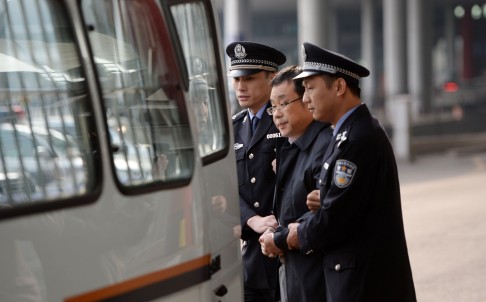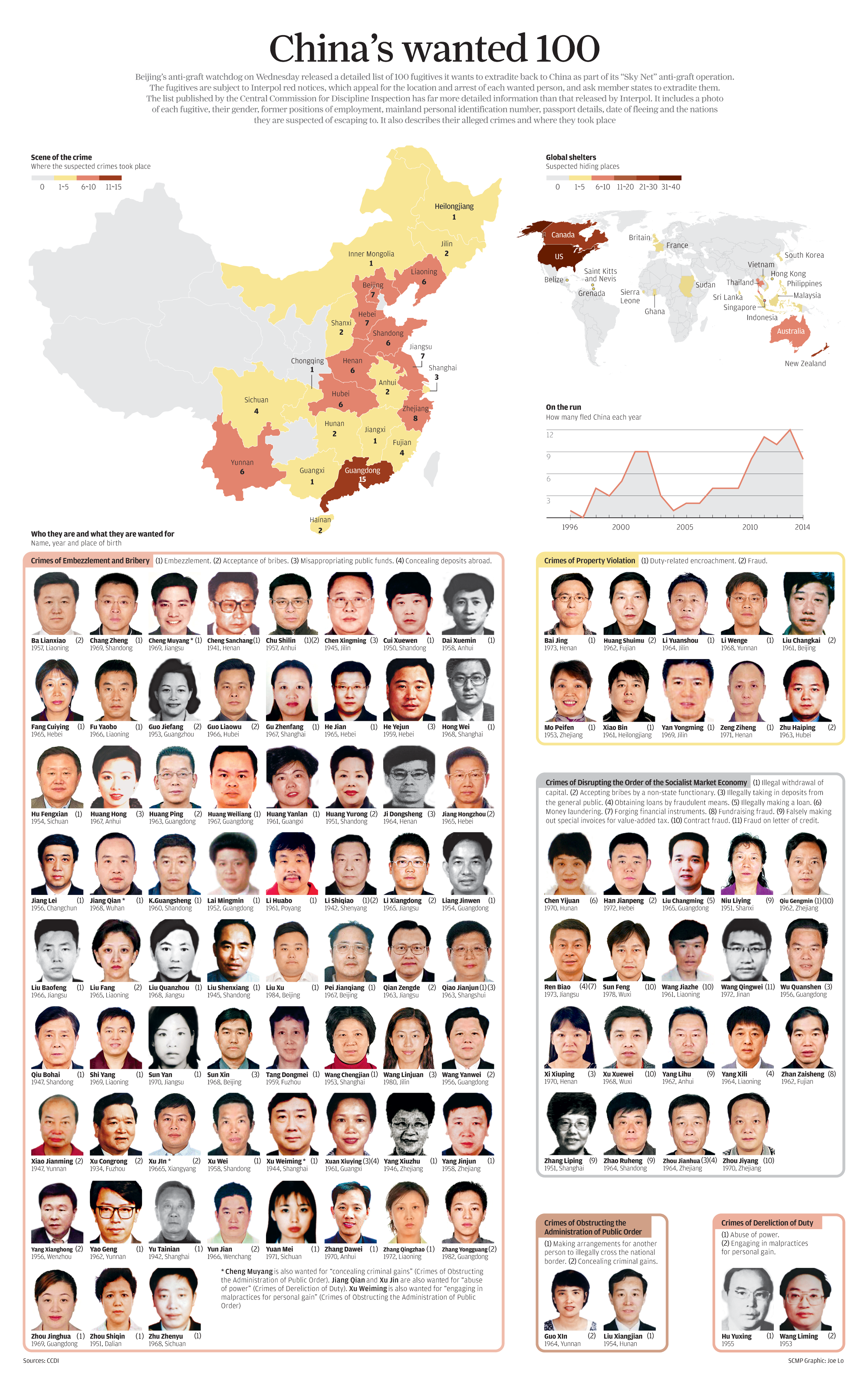Request by super power China, we give in and send back their men.
Request by our neighbour, Indonesia, we ignored and pissed them off.:(
Shows that ASEAN is not working.
Request by super power China, we give in and send back their men.
Request by our neighbour, Indonesia, we ignored and pissed them off.:(
Request by super power China, we give in and send back their men.
Request by our neighbour, Indonesia, we ignored and pissed them off.:(

Money laundering is an important economic activity. It helps cleanse the system.


INFOGRAPHIC: China's Wanted 100
Beijing's anti-graft watchdog released on April 22 a detailed list of 100 fugitives it wants to extradite back to China as part of its "Sky Net" anti-graft operation. Here is our back page published on April 25, 2015 in print.
Alberto Lucas Lopez and Joe Lo
PUBLISHED : Monday, 18 May, 2015, 11:59am
UPDATED : Wednesday, 20 May, 2015, 8:42am



U forgot the importation of garbage.Now then you know.
How do you think the PAP govt got so rich? Brilliant investments? Intelligent and honest governance? Blessings from God? :kma:
It's a combination of:
1) Extractive policies ('pay and pay' from the cradle to the grave)
2) Letting others park their dubious money here ('10 more billionaires to set up base here')
3) Ruthless cost-cutting measures (stingy with welfare, outsourcing to the cheapest bidder, selling national assets)
That is the essence, the true nature of PAP rule.
U forgot the importation of garbage.

Now then you know.
How do you think the PAP govt got so rich? Brilliant investments? Intelligent and honest governance? Blessings from God? :kma:
It's a combination of:
1) Extractive policies ('pay and pay' from the cradle to the grave)
2) Letting others park their dubious money here ('10 more billionaires to set up base here')
3) Ruthless cost-cutting measures (stingy with welfare, outsourcing to the cheapest bidder, selling national assets)
That is the essence, the true nature of PAP rule.

What an ugly race.



